Before cities even came into being, our ancestors’ homes were the villages that are spread out across India. Every village has their own culture, tradition, heritage, legends and stories.
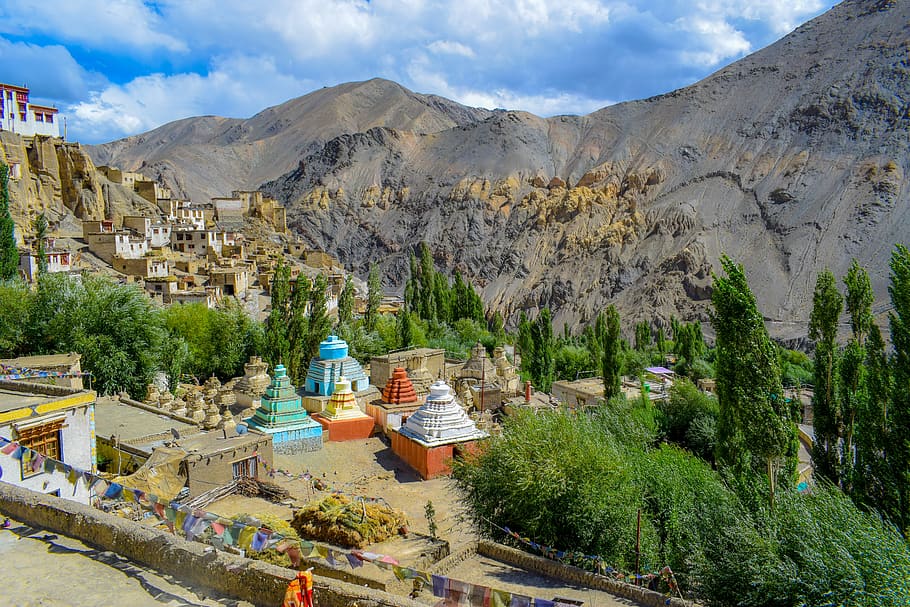
These small settlements have taught us morals and what it’s like to live very close to each other. Today when life is so fast and dystopic, cities bring in mental pain. The villages offer us a chance to go back to our roots and reconcile with the goodness of humans themselves.
We are indeed fortunate that India remains a country with a living historical richness and an amazingly diverse culture. The tapestry of charming villages spread in pockets across the country offers a glimpse into its vibrant rural life.
Visiting some of India’s most beautiful hamlets is akin to stepping into a timeless world, untouched by the clamour of urbanization. Away from the hustle and bustle of city life, these quaint, serene villages embody the essence of India in its purest form.
They showcase the country’s diverse topography, from verdant valleys and snow-capped mountains to lush forests and tranquil river islands. Each village, with its distinct culture, traditions, and delectable cuisine, unfolds a new facet of India‘s deep-rooted heritage.
Embarking on this journey to explore India’s most beautiful villages is not only a visual delight but also a spiritual and cultural exploration that is bound to leave you fascinated and enriched.
Gokarna, Karnataka
Known for its pristine beaches and revered temples, Gokarna, a small temple town in Karnataka, exudes a charm quite like a village. This quaint town is famous for its serene, scenic beaches such as Om Beach, shaped like the spiritual symbol ‘Om’, Kudle Beach, and Paradise Beach, each offering a unique charm with their soft sands, clear blue waters, and coconut groves.
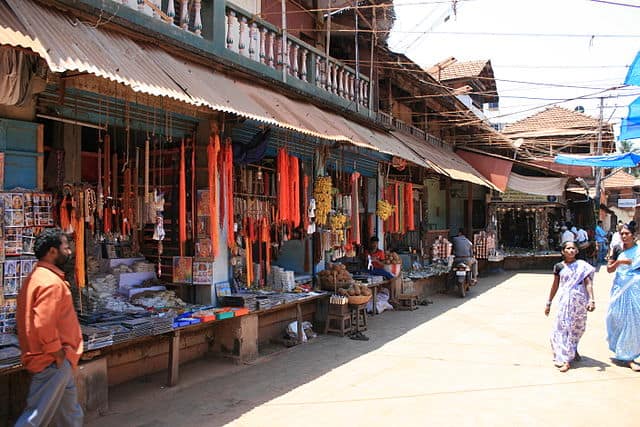
Exploring the narrow lanes of this village, you will come across many traditional houses, small cafes, and shops selling religious paraphernalia, alongside intricate handicrafts that reflect the local culture.
Its religious significance is equally profound, with the ancient Mahabaleshwar Temple being a prime pilgrimage site, attracting countless devotees.
Ziro, Arunachal Pradesh
Nestled amidst the Subansiri district’s pine hills in Arunachal Pradesh, Ziro is a captivatingly beautiful village. Known for its rice fields and the unique Apatani tribe, Ziro’s charm lies in its untarnished beauty and simple lifestyle. It is on the tentative list of being declared a UNESCO World Heritage Site, it is the cultural heritage site of the Apatani tribe.
Visiting Ziro is akin to stepping into a portal that takes you into a world of emerald-green rice fields, bamboo groves, and a sky that changes hues with every passing hour. You find yourself enthralled by the simple lifestyle of the locals, their tattooed faces adorned with large nose plugs, a reminder of the tribe’s intriguing history.
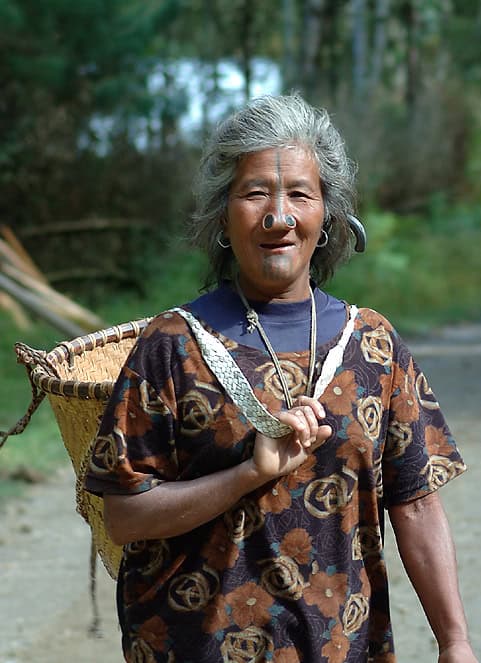
With the placid backdrop of the pine-clad hills, Ziro’s beauty is only magnified by the melodious folksongs that fill the air, particularly during the Ziro Music Festival, a treat for music enthusiasts. Despite the modern times, Ziro has managed to retain its old-world charm and natural splendour, providing an enchanting experience that’s both rejuvenating and educative.
Munsiyari, Uttarakhand
Literally translating to a ‘place with snow’, Munsiyari is a quaint village in Uttarakhand that offers stunning views of the snow-capped Kumaon Himalayas. It’s a starting point for several treks into the interior of the range.
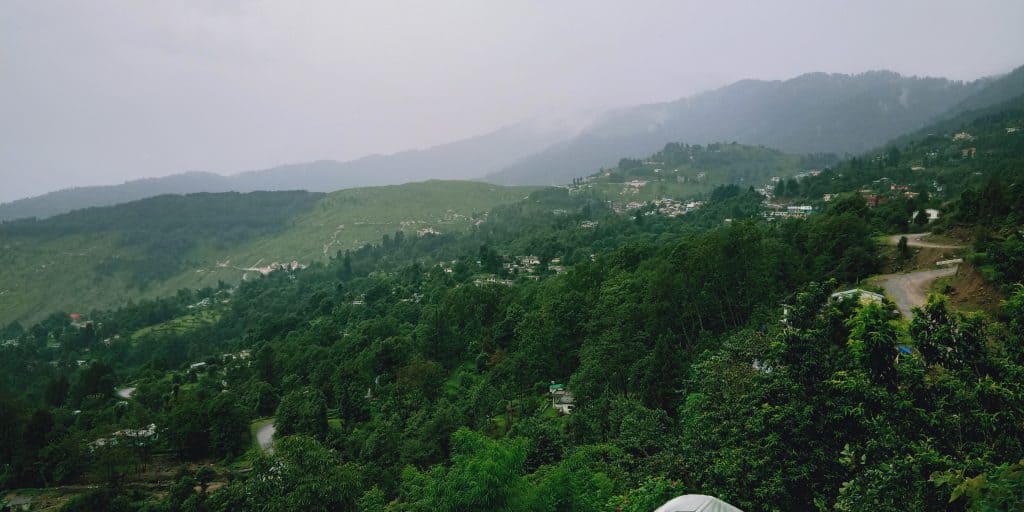
The village is also home to the Bhotia tribe, known for their weaving skills and woollen handicrafts. The pristine environment, picturesque landscapes, and tranquil ambience make Munsiyari a must-visit place.
Majuli, Assam
Majuli, one of the world’s largest river islands, is a vibrant cultural hub of Assam. The village is famous for its Vaishnavite Satras (monastic centres), unique tribal culture, and biodiversity.
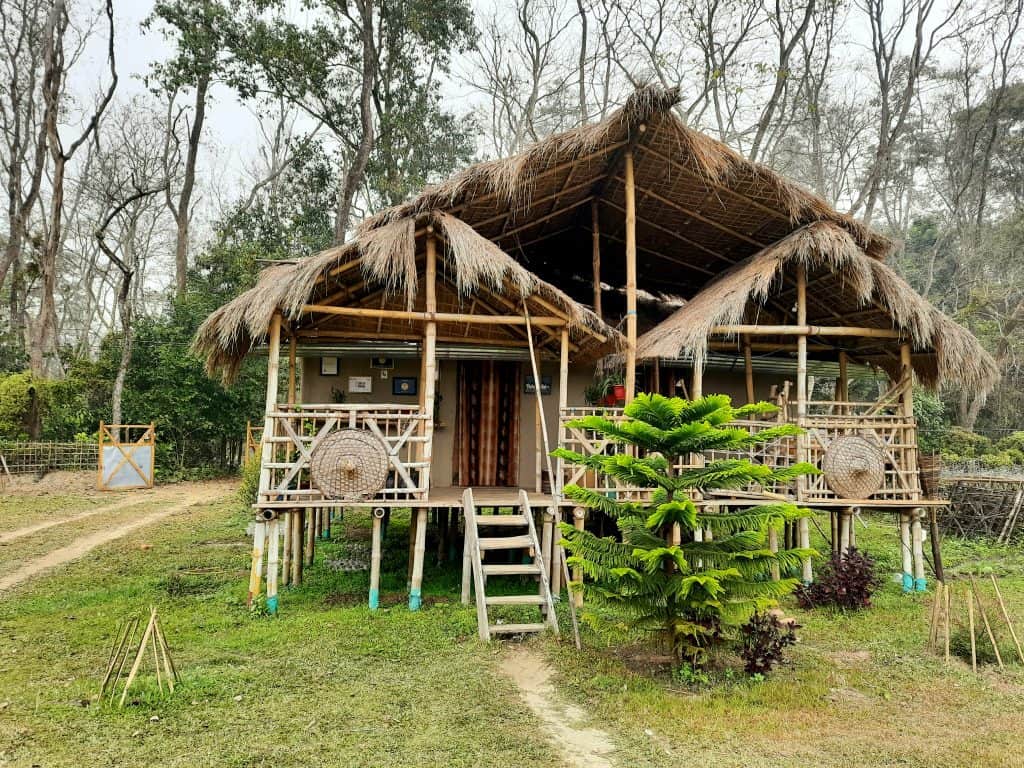
The annual Raas Festival is a significant cultural event showcasing the rich heritage of the region. Known for its beautiful sunrises and sunsets, Majuli is an ecological paradise and a haven for birdwatchers.
Khonoma, Nagaland
Known as the first ‘Green Village’ in India, Khonoma in Nagaland is a remarkable blend of environmental conservation and tribal heritage.
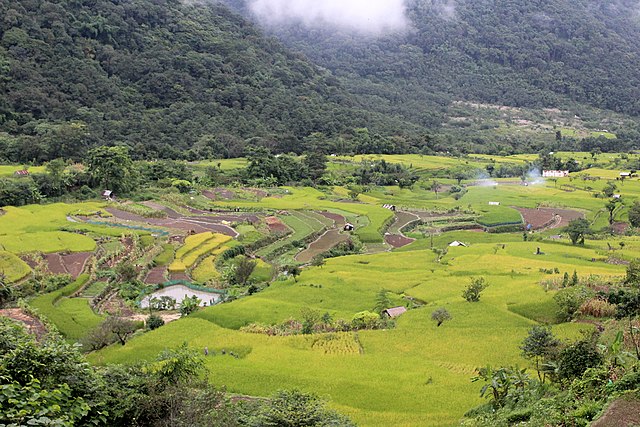
The village is home to the Angami Naga tribe who are renowned for their sustainable agricultural practices, including the cultivation of the famous alder trees that enhance soil fertility. Khonoma’s terraced fields, set against a backdrop of lush green forests, are a sight to behold.
Diskit, Ladakh
Dikshit is located in the remote district of Ladakh. The town is filled with calmness and peacefulness that invite numerous guests.
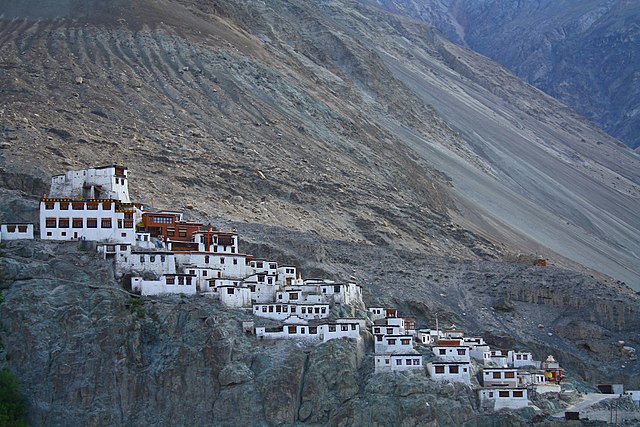
Image Credit: Debrup Majumdar, CC BY-SA 3.0 via Wikimedia Commons
The town additionally plays host to the sculpture of Maitreya Buddha who is said to be the founder of this town. You can also go on a small excursion to Nubra Valley located just nearby. Partaking in Bird watching is likewise a popular activity in the valley.
Malana Village, Himachal Pradesh
Malana, an ancient Indian village in the Kullu Valley, Himachal Pradesh, is often referred to as ‘Little Greece’. It’s famous for its distinct social and political structure, which the locals believe to be the world’s oldest democracy. The people of Malana are known for their unique customs and strict social rules. The lush green valleys, snow-capped peaks, and serene ambience make it a paradise for nature lovers.
The villagers believe they are the descendants of Alexander’s army. After the battle of Hydaspes, some soldiers of Alexander sought refuge here. Hence the villagers have a very closed society not interacting much with the visitors.
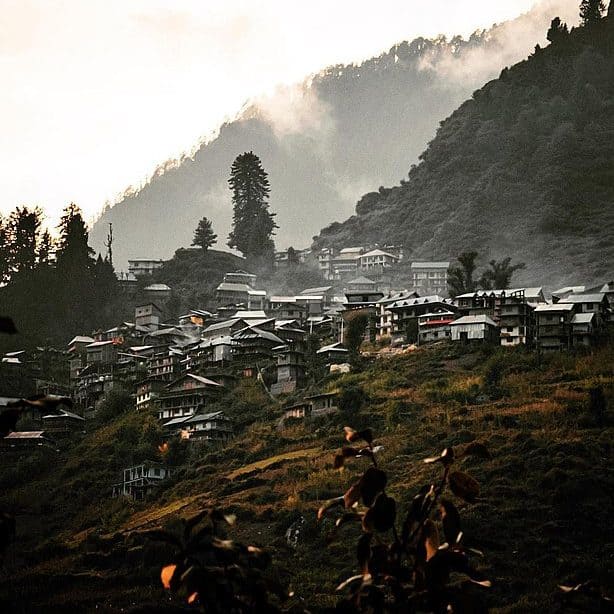
Image Credit: A.sachit, CC BY-SA 4.0 via Wikimedia Commons
They don’t allow visitors to touch them or their belongings. Sadly the greatness and stories of Alexander’s conquests fail in front of the special Hashish “Malana Creme”. There is restricted access to the village. There are no places to stay and is mostly an excursion spot. If visiting one has to take one’s own food/refreshments.
Nako, Lahaul
Nako is a village that lies on the route to Lahaul District. The locals are mostly engaged in agricultural activities, and animal fostering. Nako has an old Monastery that was built by Rinchen Zangpo the great translator. The walls of the monastery are covered with intricate drawings about the Buddha’s life. Another beautiful attraction is the “Nako Lake”. The lake is a mirror image of the village, clean and full of life. You will also find little stone compartments where lambs and calves sit by and warm each other. It is a cute thing to see.
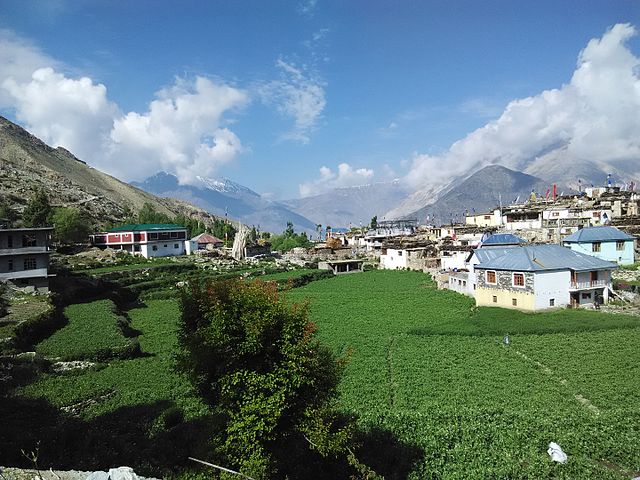
Image Credit: Sumita Roy Dutta, CC BY-SA 4.0 via Wikimedia Commons
Individuals frequently go to Nako to encounter isolation and reconnect with themselves.
Mawlynnong, Meghalaya
Mawlynnong in Meghalaya is the state’s diamond. The town has laid out a solid foundation advancing in the field of eco-tourism, a drive that is upheld by both the inhabitants and the public authority to protect their environment.
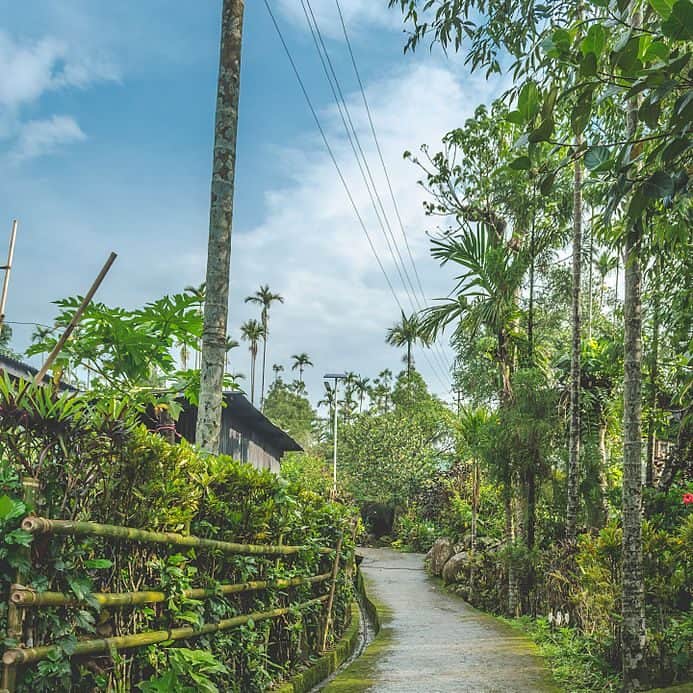
Image Credit: Sai Avinash
The village was deemed as the “cleanest village” in 2003. The village is not only pristine but also creative, with unique tree houses offering a bird’s eye view of the Indo-Bangladesh border. Mawlynnong is the epitome of community-driven eco-tourism.
The village is famous for its living root bridges, made from rubber trees by the local Khasi tribe. It is a mind-baffling attraction. It is the definition of nature being an architect. You can attempt some lip-smack indulgences that are cooked in bamboo shoots. You can also go cavern exploration when in Mawlynnong.
Kasol, Himachal Pradesh
Nestled in the Parvati Valley, in Himachal Pradesh – Kasol is often referred to as ‘Mini Israel’ due to the influx of Israeli tourists. This village is a haven for trekkers, backpackers, and nature lovers. The crystal-clear Parvati River flowing by, the serene ambience, and the surrounding snow-clad mountains together make Kasol a mesmerizing experience. The local cuisine, particularly the Israeli delicacies, is a must-try.
This little village is popular for flower cultures and festivals and is a hitchhiker’s heaven. The Village is fixed for certain curious bistros that serve the absolute most heavenly worldwide foods you will eat upon.
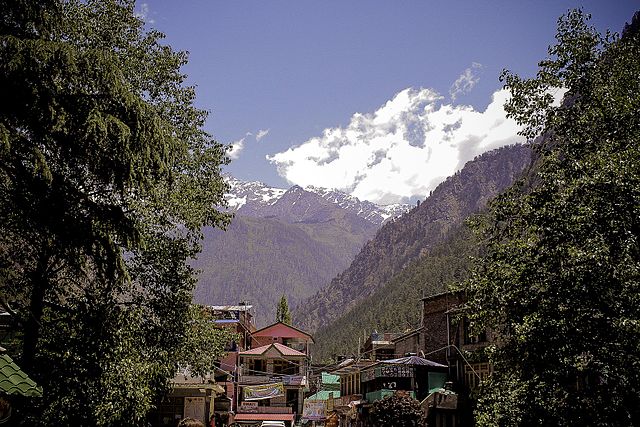
Image Credit: rohhit verma
The village is known for its ethereal excellence and some travelling trails. You can attempt a few travelling courses with Sherpas who will aid you in your treks and allow you to learn more about their livelihood.
Idukki, Kerala
Idukki is set in the most elevated place of the western ghats in the state of Kerala. The village is known for consolidating the thrilled excellence of the slopes alongside the quietude of the little village.
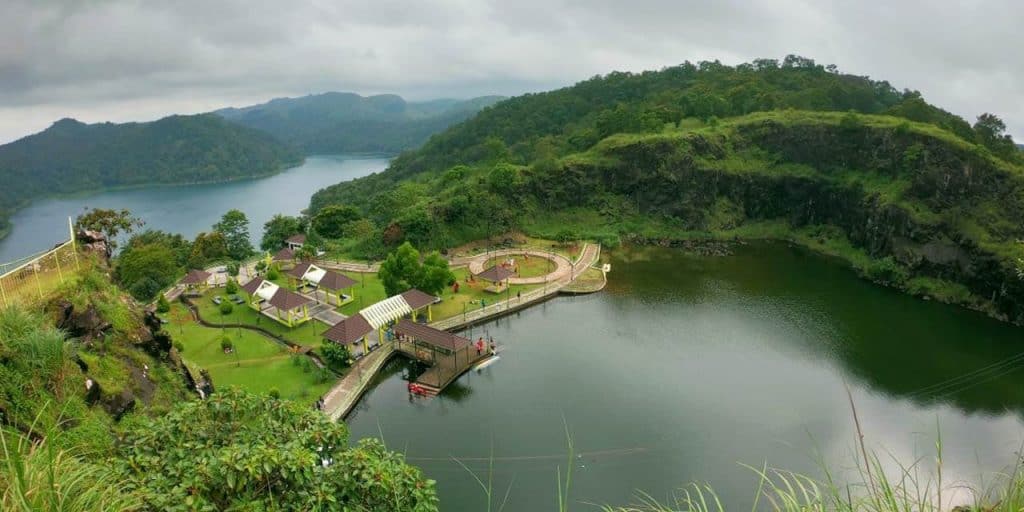
The village brags a great deal of mesmerizing attractions that incorporate, lakes woods cascades, Jungle trails and so on. You can likewise go setting up camp by the Idukki curve dam. When you have finished exploring the village you can unwind with the neighbourhood ancestral individuals of Idukki who will likewise serve tons of delicacies of Kerala to dig on.
Mandawa, Rajasthan
Mandawa is a village that was established in the eighteenth century by rich Rajasthani traders. Their richness and luxurious way of life are clear in the numerous manors that adore the village. The legacy and solid chateaus draw in an enormous number of historic tales.
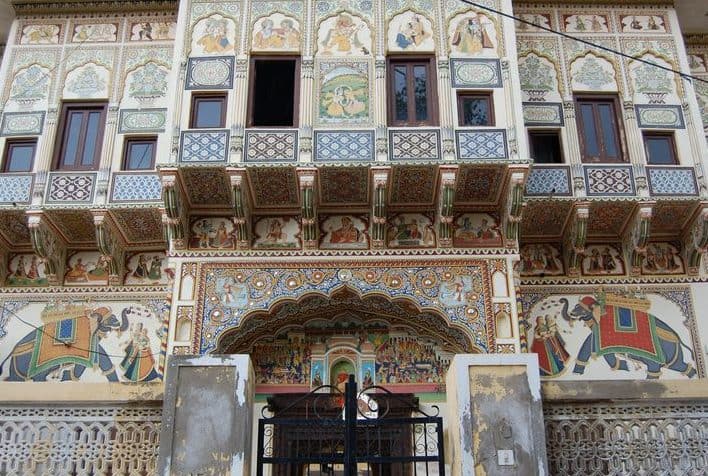
Image Credit: Dhirad, CC BY-SA 2.5 via Wikimedia Commons
You can likewise explore the delightful manors and snap all the wonderful frescoes. The village has certain neighbourhood markets where you can purchase keepsakes for your relatives and friends. The inhabitants will pamper you with some delightful Rajasthani food that you ought to attempt.
Yana, Karnataka
Yana is a village that is hidden away in the woods of Karnataka. Surrounded by the Sahyadri mountain gives it a beautiful panoramic view. The most visited part of the village is the dark glasslike rocks that resemble a Shiva lingam that has bewildered numerous researchers and scholars.
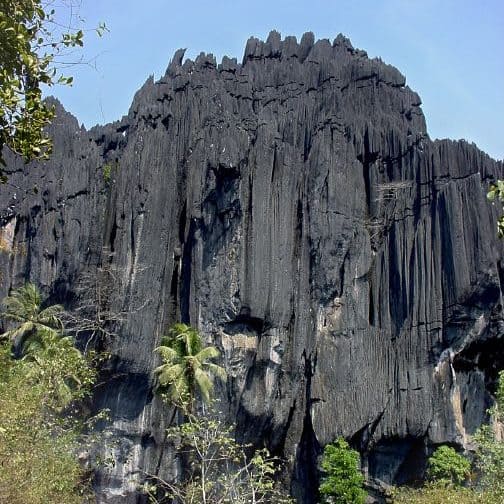
Image Credit: Ramesh Meda, Sonarpulse, CC BY 2.0 via Wikimedia Commons
The stone assembles the consideration of a few pioneers just as nature fans to this spot. You can likewise visit the close by Vibhooti Falls when in Yana.
Tabo, Spiti
Tabo is a small village that is 47 kilometres away from Kaza and is situated near the banks of the Spiti river. Tabo holds places of historical and Buddhist interest. The Tabo Monastery was founded in 966 CE by Rinchen Zangpo The great translator which is now under the protection of ASI( Archaeological Survey of India). The monastery has 9 temples, four decorated stupas, and cave shrines.
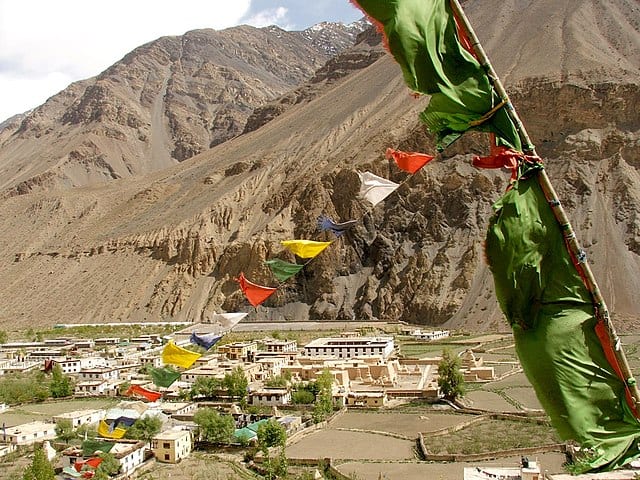
Image Credit: Michael Scalet, CC BY-SA 2.0 via Wikimedia Commons
One of the notable stories of the golden temple here is that it was plated in Gold. The interiors of the temples are old and covered with wall paintings in a particular style called Thangka. Tabo also has another attraction, which is the Tabo Caves. The walls is decorated with murals and Thangka Paintings. Preservation measures are being taken to slow down the rate at which the paintings are deteriorating. There is also a small market where one can enjoy a warm bowl of Thukpa while interacting with the locals.
Langza, Himachal Pradesh
Langza is one of the most beautiful villages not in Himachal Pradesh but in India. The name means the village of the Gods. One would give up everything just to live here. Residing here is truly a gift from the Gods. Langza is situated on a plateau at an altitude of 4400 metres.
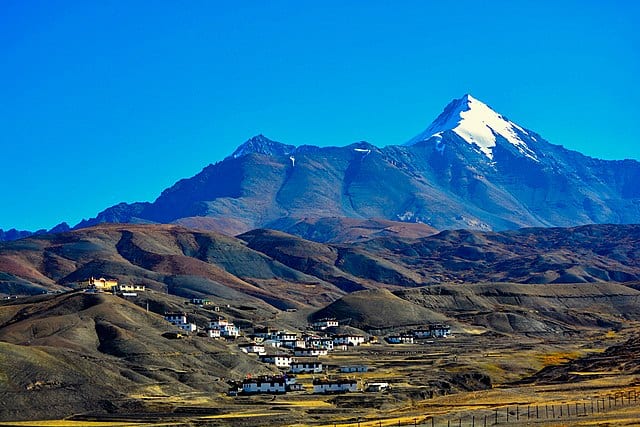
Image Credit: Madhumita Das, CC BY-SA 4.0 via Wikimedia Commons
One of the most notable attractions is the Buddha statue just watching over the valley silently day and night. The beauty of this village cannot be captured by any camera, it doesn’t do any justice to what the human eye sees. It is truly an alien world.
Visiting India’s most beautiful villages are a soul-enriching experience
Embarking on a journey to India’s most beautiful villages is a soul-enriching experience that offers a different, quieter perspective of this vibrant country.
Nestled amidst verdant landscapes and pristine rivers, these villages offer an extraordinary escape from the fast-paced rhythm of the modern world. You will discover the traditional culture, sample delectable local cuisine, and marvel at the architectural heritage, blending effortlessly into the breathtaking surroundings.
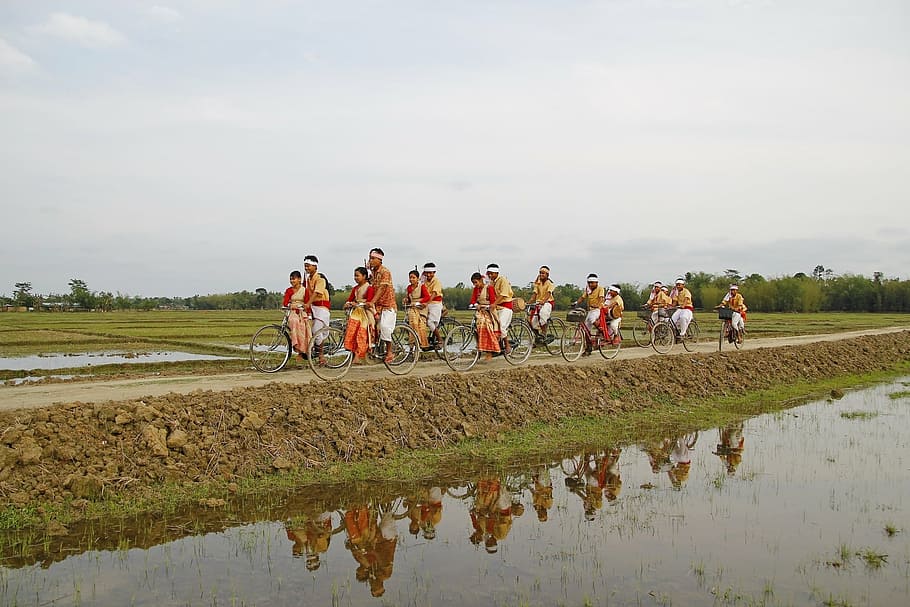
More than just a visual delight, they provide an intimate interaction with the soil and soul of India. Each village, with its unique charm, leaves an indelible mark on your heart, compelling you to return. This is a voyage not only to the picturesque landscapes but also into the heart of India’s cultural richness and timeless traditions.
Read more: Discover your India



